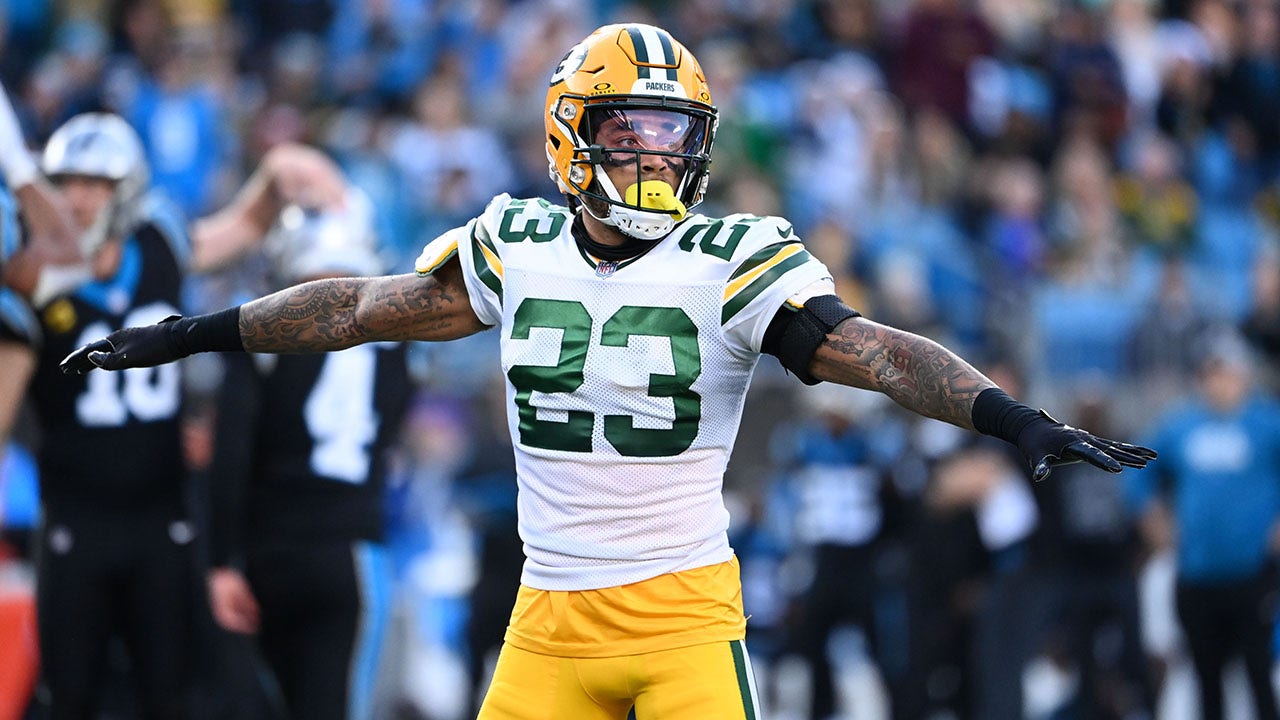Perspective | In a sport always in flux, Nick Saban’s standard never wavered
But Saban’s retirement as the coach at Alabama is jarring for a sport that is in upheaval. College football is unstable. What is it without Saban, the epitome of stability?
By their nature, college sports produce outsize coaches. The players change. The coaches stay. They define programs. They define conferences. They provide the television programming. They’re the constants.
In that prism, Saban was an alpha: steadfast, stern, disciplined and demanding. It’s simple to call him old-school, but that’s not really right. He’s a defensive coach by training — and, frankly, personality — his most recent Alabama teams were absolute TNT on offense. Why? Because college offenses began spreading the field, so for Saban to try to win the way he did as a player under Don James at Kent State or in his early coaching days at Toledo or as Bill Belichick’s defensive coordinator with the Cleveland Browns or at Michigan State — it just wouldn’t work anymore. The great ones are grounded in principles. But the great ones also know when and how to adjust. None did so better than Saban.
Because he is retiring at this point in college football’s evolution — with name, image and likeness rights bringing players riches and the transfer portal allowing them de facto free agency — it will be easy to say he’s stepping down because he didn’t want to deal with what so many coaches consider distracting nonsense anymore. Maybe that’s part of the reason. Maybe it’s the whole reason. Indeed, he said a few times recently, “Is this what we want college football to be?” We won’t know the full reason until he speaks, and even then maybe he’ll provide only part of the answer.
But whatever the motivations, it’s unarguable that he is stepping down when he could still produce. The last of his 297 college wins — the last of his 206 in 17 years with the Crimson Tide — came in the SEC championship game against Georgia, the two-time defending national champion. Yeah, he lost in the CFP semis against Michigan, a game the Tide looked poised to win. But analyze either of those games, and one conclusion is clear: Saban can still coach.
Because he’s retiring when that’s the case, it’s hard not to cast an eye to his old buddy and boss Belichick. They are analogous in so many ways: consistency, demeanor, beliefs, work ethic and just flat-out football nerdiness.
Saban’s decision, though, means he has a distinction from Belichick, who turns 72 in April: Saban never bottomed out, not close. In 28 years as a college coach, he didn’t have a losing season. Belichick seems in limbo with the New England Patriots this week because three of his past four teams have posted losing records, including a 4-13 mess this season. Whether that diminishes his legacy or means he should be shown the door after 24 seasons, Belichick’s recent record makes those both legitimate debates.
Saban — retiring after a 12-2 season in which he won the SEC title, with his seven national titles marred by absolutely nothing — goes out … if not on top, damn close to it.
What a career. There’s really no way to overstate the hope generated by Saban’s arrival at Alabama and the absolute transformation that followed. After winning a national championship at SEC rival LSU, Saban coached the Miami Dolphins for two seasons. When he departed to take over the Crimson Tide in 2007, the Tuscaloosa News put out a special edition with a headline that blared “SABAN TIME.” The Associated Press named Saban’s hiring the story of the year in the state.
In a state where self-worth can be tied to the fortunes of the Tide, it makes sense. Alabama had just three winning seasons in its previous seven, and it was churning through coaches — four since the retirement of Gene Stallings, who had won the Tide’s most recent national championship in 1992, and five if you include Mike Price, who was fired in scandal before he coached a game in 2003. A pillar of college football was, upon Saban’s arrival, decidedly rickety.
Seventeen years later, can you imagine anything associated with Saban that is anything less than rock solid? In the decade before his arrival, Alabama had won 10 games in a season three times and never more. Saban went 7-6 in his first year. He would never fail to reach double digits again. Eight times his Tide teams lost either zero or one game. Eight times.
That’s stability in all areas. Well, maybe not with his coaching staff. That was always evolving — not because he fired coaches but because other schools came sniffing. Coach alongside Saban, and you’re all but knighted. You could be an up-and-comer or a rehab project, but the list of those who went elsewhere is all but endless.
Georgia Coach Kirby Smart worked for him. Texas Coach Steve Sarkisian worked for him. Mississippi Coach Lane Kiffin worked for him. Maryland’s Michael Locksley, Oregon’s Dan Lanning, Miami’s Mario Cristobal, Florida’s Billy Napier — not to mention former Florida coaches Will Muschamp and Jim McElwain — as well as Brian Daboll of the New York Giants. That’s quite a roster. It’s also incomplete, which is staggering.
Maybe it was easy to get sick of Alabama, of Saban. His teams were so good. His players went on to determine the fates of NFL teams. He was always on TV. His Crimson Tide never went away.
Good riddance? Hardly. For a sport with tectonic plates that are shifting and seem likely to continue to shift, not having a voice and a vision as clear and powerful as Nick Saban’s is even more unsettling. Good for him for going out near the top of his game. Too bad for his sport that he’s leaving at all.







